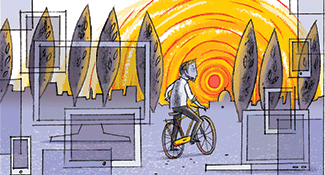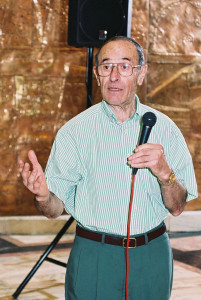And this, too, at The American Prospect:
In the least plausible alternative version of my life, I would have stayed in the San Fernando Valley rather than leaving Los Angeles over 40 years ago and moving not long afterward to Jerusalem. In that scenario, I’d be represented in Congress by Democrat Brad Sherman—and I might be less infuriated by his recent announcement that he’ll vote against the Iran deal, because if I were an Angeleno rather than an Israeli, his decision wouldn’t pose a threat to me, my neighbors and my country.
At this distance of years and miles, I don’t normally pay much attention to an L.A. congressman, but a random tweet alerted me to Sherman’s statement. New York Senator Chuck Schumer’s declaration that he’ll vote against the accord made more headlines, and is even more upsetting, given the relatively greater weight of each vote in the Senate. In both cases, their statements barely mention Israel, but their explanations track Prime Minister Benjamin Netanyahu’s talking points for foiling the deal in Congress. You don’t have to be a cynic to suspect that Schumer and Sherman have devoted much of their study of the issue to their constituents and have concluded that voters who support the Vienna accord are a captive audience for a Democratic incumbent, while passionate opponents are swing voters and perhaps swing donors.
I imagine that Sherman, Schumer, and other Democrats who intend to vote against the agreement might respond that Netanyahu is, after all, Israel’s elected leader and therefore the accredited spokesman for its security concerns. But there would be a logical absurdity in that argument.








